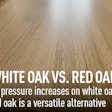TPC can stand for either Third Party Certifier or Third Party Certification.
A Third Party is, of course, someone outside or distinct from your own organization. This person/organization certifies a product's condition or a production process or a situation and confirms that the statement you are making is correct.
You generally need to recognize if the "C" is "Certifier" or "Certification" from context. For example, FSC is a well known TPC(ertification) system. The FSC system independently audits participants to ensure that they are following policy and that the material being marked as "FSC" meets their standards. The companies that audit participants are TPC(ertifiers).
CARB uses TPC(ertifiers), of course. These are testing agencies that review production and management systems and periodically test samples for emissions and make sure companies are meeting the CARB standards.
TPC(ertification) is a fact of life these days. I think there are some areas where it's very useful and necessary. When you're looking at huge chain of custody, like with the FSC program, I think it's a requirement. A stamp on a structural piece of plywood means the building isn't going to fall down-that's pretty important, too. However I do miss the days where we were innocent until proven guilty.
Aren't most all green certifications these days not really saying "you're doing something good" or "this is something above and beyond" as much as stating that that "you aren't doing bad things?"
Take many of the emission standards as an example. I like to say you'll get more formaldehyde by smoking a cigarette than you would spending a night in our warehouse. That may not be exactly true, but any emission issues you'll have in our warehouse are likely coming from the forklifts, not the flooring. But if we want to put our flooring into a "green" building project, we need to pay thousands in third-party certification to show that we haven't done anything wrong.
In the old days, you could "self-certify." I could state "the condition is X." If you showed that it wasn't X, I was in trouble. But I didn't have to constantly prove that the condition is X.
Now, a few bad actors might have been lying when they said "this is X." And I'm in full support of those who want to go after those bad actors. So personally, I'd rather see the millions (or billions) spent on proving innocence and tracking innocence be used to enforce against the small percentage of the actual guilty.
The costs of TPC have to paid by someone. And we have to ask how many of these certifications really have true value to the consumer. How much real reduction in formaldehyde are we seeing? Remember this statistic: The standard human body, through natural metabolic processes, generates and disposes of about 45,000 mg every day. This means that a person would have to breath air from CARB 2 particleboard for over 61 YEARS just to equal the amount that a body naturally generates and consumes in 24 hours. Are these regulations worth the cost?
I have the utmost respect for many TPC programs. I recognize their value and respect their work. But we have to recognize the costs and consider careful the true value of certification and the real benefit behind another stamp on our products.
I fear that we are reaching the point where we are all guilty until proven innocent.
































